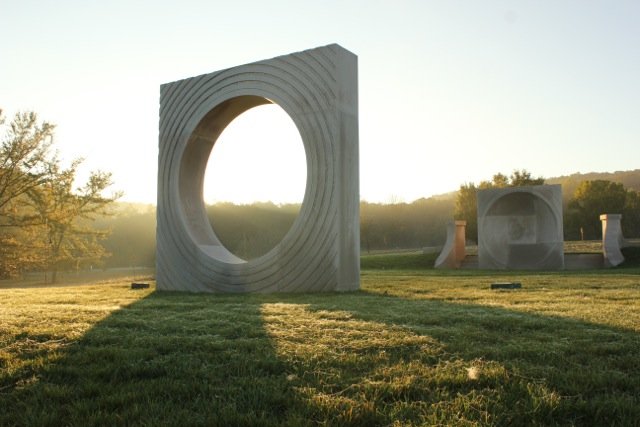“To begin…at the beginning…”
That is the opening line of the play Under Milk Wood by the poet Dylan Thomas. And it is a fitting place to start because today is a day of beginnings.
On this day 5784 years ago, humanity was created. On Rosh Hashanah, Sarah, Rachel and Hannah were all remembered by God and granted children. On Rosh Hashanah, Joseph was freed from prison and brought to Pharaoh, setting in motion the light of our eventual liberation.
It is also the time of year when we say to our friends and family, “I am sorry. Please, forgive me.” We pray and do teshuvah. We repent and ask God to help us. We forgive others and hope to be forgiven in turn. We open our hearts and minds, we listen, and we try to hear.
In Under Milk Wood, two unnamed “voices” take us through a small Welsh town late one night, listening to the dreams and memories of the townspeople, their fears and regrets, the roads not taken, and the roads taken by mistake. A line that Thomas uses throughout the play—almost like a mantra—is, “Time passes. Listen. Time passes.”
What if we listened not just to others but to ourselves? What if we took that same grace, the kindness and compassion we seek, and forgave ourselves?
But. The trick is in knowing the difference between hearing and listening.
We all have a critical voice in our heads, the voice that says, “I’m stupid. I’m a failure. I’m a bad person. I’m selfish. I’m not enough.” Sometimes it manifests as “imposter syndrome,” the feeling that you’re a fraud no matter how able or skilled you were for the job you hold. Sometimes it tells you that you don’t deserve anything more or better. It is static that clouds your reality.
So how do we listen? How do we cut through that static?
Outside Louisville, Kentucky, in the Bernheim Arboretum and Research Forest, there is a sculpture named “Earth Measure,” created by artist Matt Weir. It’s a pair of large stone squares. One has a hole in the center, and the other, placed several yards away, has a concave indentation roughly the same size at the first stone’s circle. This is an “acoustic mirror.” It collects and amplifies sound naturally. If you stand in front of it, you can hear exponentially more of the world around you simply by how it reflects sound.
If you stand quietly, you can hear the susurration of wind through the trees, the snap of a twig as a deer steps unseen in the distance, even the cough of someone on the other side of the meadow. Not every sound is beautiful, after all.
It is magical, but it is simply acoustic science. Similar structures were used on the southern coast of England in World War I because they could pick up the sound of German airplanes and zeppelins well before telescopes could see them. But you had to listen for just the right sound.

Time passes. Listen.
We all make mistakes, we all say the wrong thing at times. Let’s call that the first arrow. We’re only human after all. We do our best, but no one is perfect. What we have to watch for and guard against is what author Jillian Pransky calls the second arrow — the voice that dwells on mistakes and says, “Why did I do that?!” “I’m hopeless.” “I’m a mess.” We can’t always avoid the first, but we can stop the second arrow. The pain on top of pain, the self-inflicted wound.
We may hear it, but we don’t have to listen to it.
Years ago, a bar mitzvah mother was in my waiting room and looked frazzled. She had four school-aged children, of course she was frazzled, you do the math. She turned to me, frustrated, and said, “Cantor, I bet YOU never yell at YOUR children!” I just laughed. “Are you kidding? I can barely get them out the door for school without yelling at them!” I wanted to deflect her second arrow, she didn’t need that pain.
You know the voice. “I gave the kids Cheerios for dinner. What kind of mom am I?” Maybe that voice sounds like your own mother. (Sorry, mom!) Sometimes we’re resigned, sometimes we get angry with the voice. But if we argue with it, then we’re back at step one with another arrow, another wound.
This voice is real—we hear it, like the cough across the meadow, the deer in the trees—but we don’t have to listen to it. It isn’t speaking truth, only fear. What if what was true was that we are interconnected with this world and its Creator in a deep, profound, and loving way? What if we simply acknowledged that we are human and therefore imperfect? And what if we spoke to ourselves and forgave from a place of grace?
What is true is that the souls God has given us are pure. God waits to help us and support us at every moment but especially during these days of forgiveness. We are not in this alone.
Rabbi Shimshon Dovid Pincus teaches the following about the Days of Awe. A heavy beam represents a person. During the year it takes an incredible amount of effort and willpower to move this beam, and even then it is difficult. But during the Days of Awe, God holds that beam in the air. He raises it on a rope so that even the slightest movement will send the beam in the direction you want to go.
During this time of year, we are raised in the air, we stand like angels. With the slightest effort, a small push, we can head in the right direction. How far can we go? Rav Pincus brings us the example of a person waiting to board a train. The destination is far away, but all you need to do is just take one small step onto the train. Yet many people stand on the platform watching the trains go by, wondering why they don’t move.
How do we get on the train? We soften. We open. We listen to what we know to be true. We see the child we were, and we give to them the boundless unconditional love we give our own children.
The refuah, the healing we seek is found in loving ourselves. Acceptance. Understanding. It is not to be more than we are, it is not to aspire to some impossible perfection — it is literally to return in Hebrew — shuv — to our true selves. You are already complete.
Listen. Time passes.
In a more Jewish context, the prophet Ezekiel prophesied about the end of the Exile of God’s people after their sins and brought the following words from the Lord:
וְנָתַתִּ֤י לָכֶם֙ לֵ֣ב חָדָ֔שׁ וְר֥וּחַ חֲדָשָׁ֖ה אֶתֵּ֣ן בְּקִרְבְּכֶ֑ם וַהֲסִ֨רֹתִ֜י אֶת־לֵ֤ב הָאֶ֙בֶן֙ מִבְּשַׂרְכֶ֔ם
וְנָתַתִּ֥י לָכֶ֖ם לֵ֥ב בָּשָֽׂר׃
And I will give you a new heart (lev) and put a new spirit (ruach) into you: I will remove the heart of stone from your flesh and give you a heart of flesh (Basar).
Not a renovation but a restoration, a rejuvenation. The word spirit here—ruach—is the same word for breath. Specifically, a breath that connects and revives, a breath that is in the moment of now. Listen. It is your breath, my breath.
Our breath.
Life happens. Good things and bad. How often do we let the bad outweigh the good in our mind? How often do we dwell on missed expectations, sickness, disappointments? How long do we replay failures and fights, mistakes and missteps? Our hearts can become heavy and hard as stone. But that is not our true nature. God knows this. We thank God in our morning prayers for giving us a “lev Tahor” — a pure heart. That’s who we are. That is who we can become again.
Listen.
Today we heard the blast of the shofar. Why? Maimonides teaches that this is a symbolic wake up call. “You that sleep, wake yourselves up from your sleep, and you who are slumbering, emerge from your slumber.” We’re not sinners, not bad people, we’re just sleeping. Everything we need is inside us if only we could wake up.
How many of us sleepwalk through our days. Coffee, doomscrolling on the phone, getting the kids to school. (…yelling…) Work. Dinner. TV. Sleep and do it again the next day. The shofar is a clarion call to shake us from our routine and make space for our soul, to nourish and nurture our spirit. It helps us remember ourselves. We do so much, but sometimes we need to simply be. We are not only do-ers, we are also beings.
One last idea to share. This summer I went to study for a week with Jillian Pransky at Kripalu, a yoga and wellness retreat in the Berkshires. It’s an old ashram, and you get up at 6 to do yoga and eat breakfast in silence. No coffee, no doomscrolling, no phones at all. It is peaceful and beautiful. And like the sculpture, Earth Matters, like Dylan Thomas’s small Welsh town, it invites you to listen.
One night, there was a new moon ceremony. There were about 80 people in a forest grove—the susurration of wind—all of us around a bonfire—the crackling of wood and sap as it burned. We were instructed to write down something that no longer served us, something that we could let go.
One by one, we walked to the bonfire—footsteps crunching gravel—and we each threw our words into the flames—the flash of paper catching fire. And as I let go, I thought, “This is basically tashlich!” Yesterday, we couldn’t fulfill this tradition due to it being Shabbat, but today we have the opportunity to cast away that which we no longer need.
Typically, we throw bread representing our sins, but this year, I invite you to join me in a different approach. We have biodegradable paper and pencils in the woods on which you can write down that which no longer serves you and throw it into the water to dissolve. Take a moment in the quiet, to not only hear but to listen, to reflect, to purge and purify.
And look, I know, it’s hard to cut through the static, it’s so much white noise and distraction. But here’s something. Did you know that in the sound of actual static, there are still traces of the microwave radiation from what scientists call the Big Bang? It’s true. In every instance of static, buried deep within, we can still see and hear the sound of creation.
And so. “To begin at the beginning…” let us begin…to listen and to heal.
Shana Tovah.

